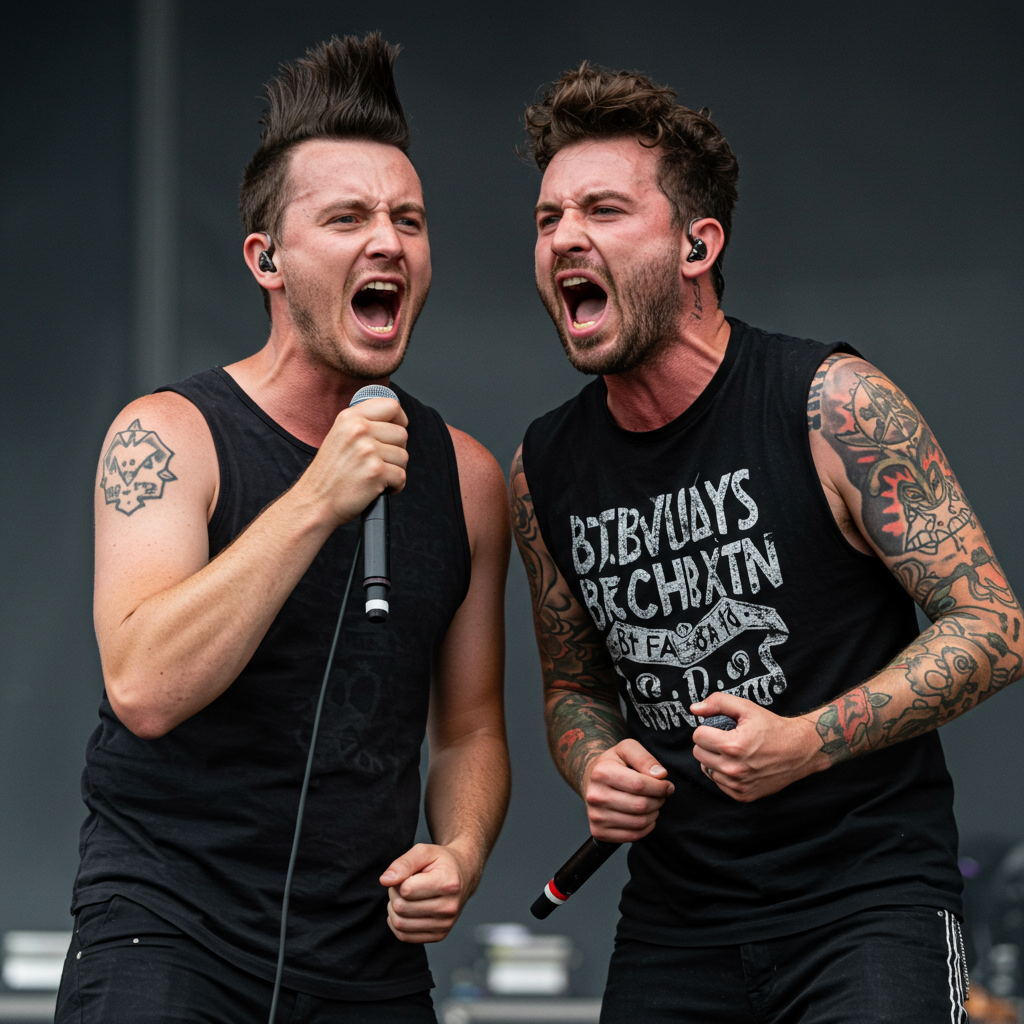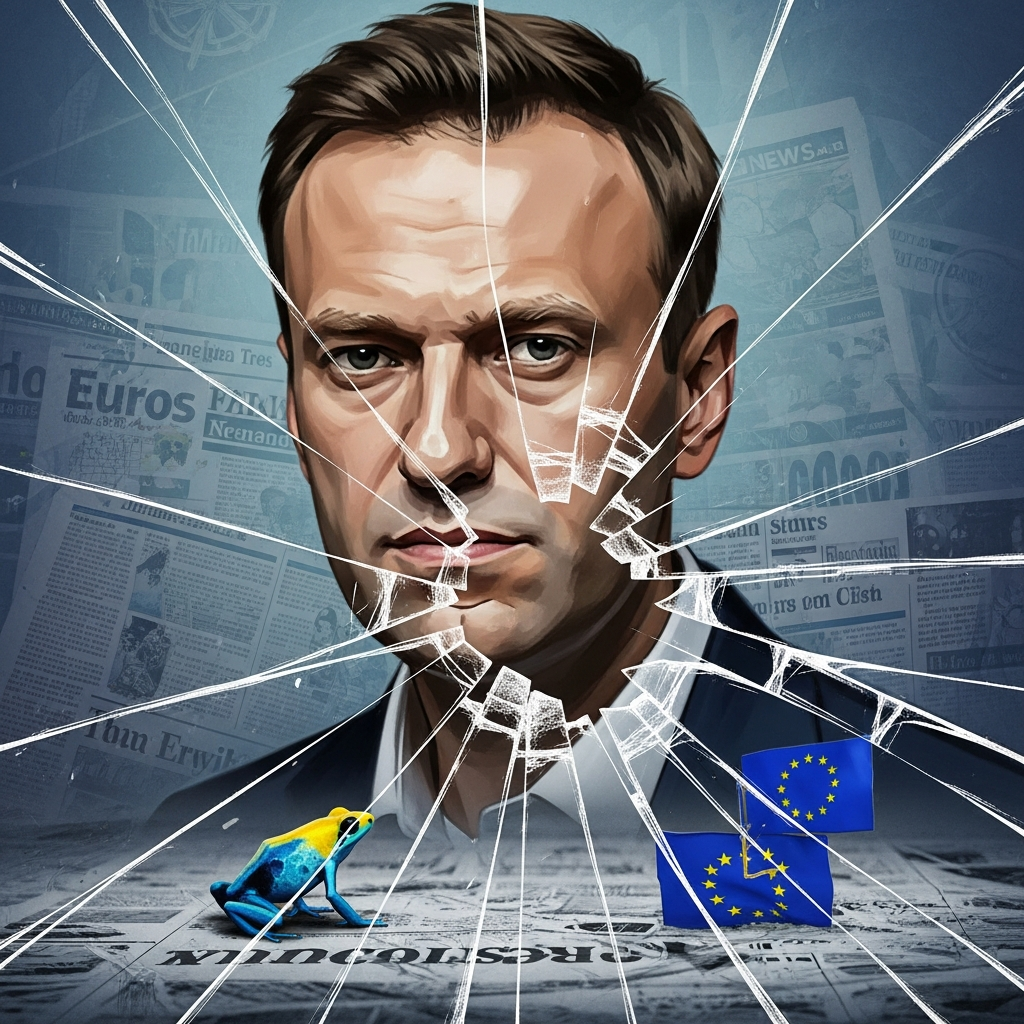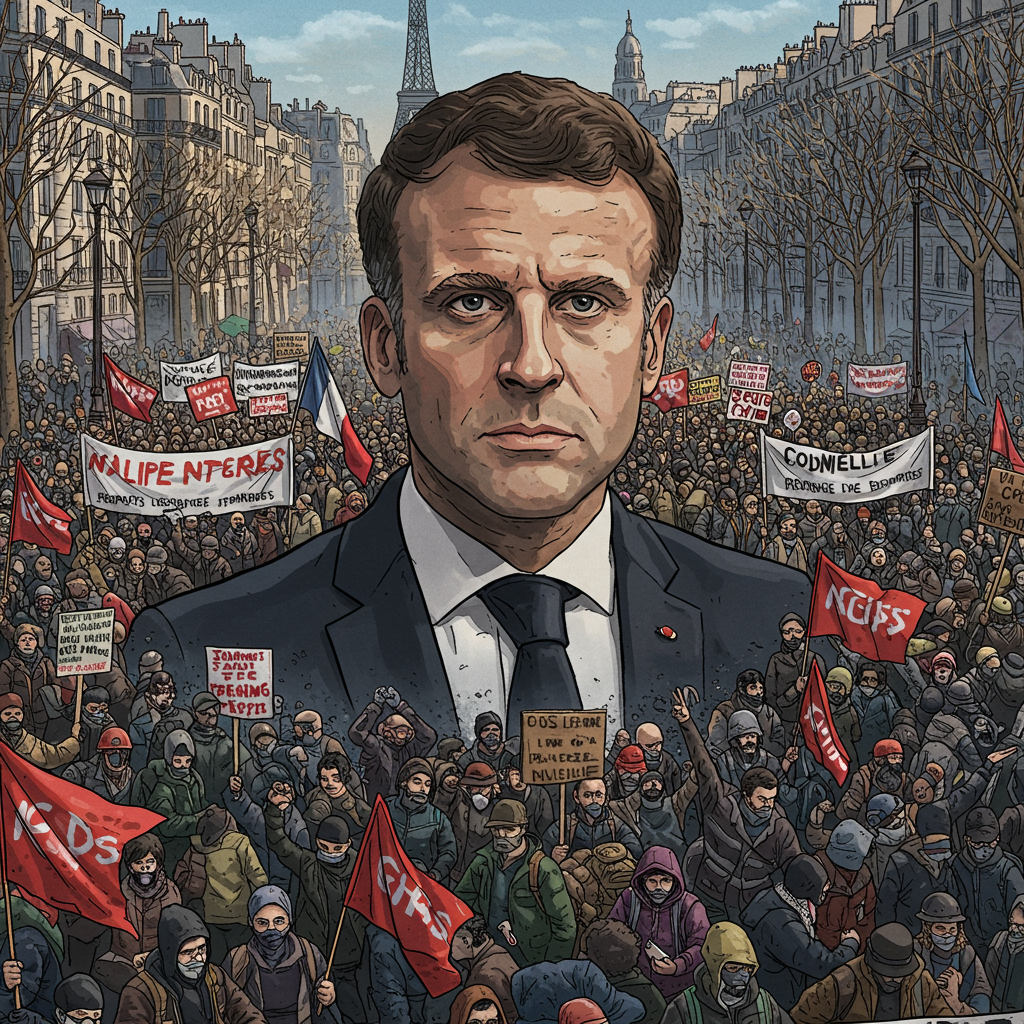A performance at the iconic glastonbury Festival in the UK has sparked international backlash and significant consequences for the British punk-rap duo Bob Vylan. During their set, the band led attendees in a controversial chant targeting the Israeli military. This action quickly drew condemnation from various parties and prompted a swift response from the United States government. The incident highlights the complex intersection of artistic expression, political commentary, and international relations, leading to official investigations and visa revocations.
Fallout from the Glastonbury Stage
The incident unfolded during Bob Vylan’s performance on Saturday, June 29, 2024, at the massive Glastonbury music festival. As reported by multiple sources, the band’s lead singer, Bobby Vylan, directed the audience to repeat specific phrases. Among these were calls for “free, free Palestine” and, more controversially, “death, death to the IDF.” This chant specifically referred to the Israel Defense Forces, the military wing of Israel.
The performance was notably live-streamed by the BBC, the UK’s public broadcaster. While the stream was ongoing, a message appeared on screen contrasting the UN’s characterization of the situation in Gaza as a potential genocide with the BBC’s description as a “conflict.” Following the controversial chants, which also included the phrase “From the river to the sea Palestine must be, will be, free,” significant controversy erupted. The band, known for their anonymous identities and politically charged lyrics, stated their actions were intended to encourage younger generations to fight for change through visible activism and using platforms offered to them.
The United States Takes Decisive Action
The response from the United States government was notably strong and immediate. Deputy Secretary of State Christopher Landau announced via social media platform X that the US State Department had formally revoked the US entry visas for both members of Bob Vylan. Landau explicitly cited the band’s “hateful tirade at Glastonbury, including leading the crowd in death chants” as the direct reason for the revocation.
He further emphasized the US stance, stating clearly that “Foreigners who glorify violence and hatred are not welcome visitors to our country.” A senior State Department official reportedly confirmed the review process ahead of the band’s anticipated US tour dates later in the year. This official reiterated that US policy under the current administration includes not issuing visas to foreigners perceived as supporting terrorists. The band’s official website had listed over a dozen tour dates scheduled across the United States starting in late October, all of which are now jeopardized by this decision. The US State Department spokeswoman Tammy Bruce added that the incident was deemed to have violated the criteria for entry into the United States.
UK Investigations and Institutional Reactions
Beyond the US visa ban, the controversial performance triggered significant reactions within the United Kingdom. UK police quickly announced they had launched a criminal investigation into the events at Glastonbury. This investigation specifically concerns the performances by both Bob Vylan and the Irish-language band Kneecap, who also faced scrutiny for leading pro-Palestinian chants.
Avon and Somerset Police classified the incidents as a “public order incident.” They acknowledged receiving a large volume of communications from people globally regarding the performances. Police statements underlined that hate speech has “absolutely no place in society.”
Backlash Against the Broadcaster
The BBC, which live-streamed the set, faced intense criticism for its handling of the situation. The public broadcaster later issued a statement expressing deep regret for not cutting short the live stream. They described the “antisemitic sentiments expressed by Bob Vylan” as “utterly unacceptable” with “no place on our airwaves.”
While acknowledging the challenges of live broadcasting, the BBC admitted that “with hindsight we should have pulled the stream.” The network stated its respect for freedom of expression but drew a firm line against “incitement to violence,” recognizing the language used as “deeply offensive.” The BBC also confirmed it would not make Bob Vylan’s set available on demand via its iPlayer service. British Prime Minister Keir Starmer and other politicians publicly condemned the chants as “appalling hate speech” and questioned the BBC’s decision to air the performance live.
The UK’s broadcasting regulator, Ofcom, also weighed in on the controversy. Ofcom expressed significant concern regarding the BBC’s live stream. The regulator stated that the public broadcaster “clearly has questions to answer” regarding how the segment was permitted to air.
Glastonbury and Other Responses
Glastonbury festival organizers themselves condemned the chants. They released a statement affirming that the words used “very much crossed a line.” The organizers reiterated that there is “no place at Glastonbury for antisemitism, hate speech or incitement to violence.” They also stated they were taking steps to remind everyone involved in the festival’s production about this strict policy.
The Israeli Embassy to the U.K. also responded to the incident. A statement from the embassy expressed being “deeply disturbed by the inflammatory and hateful rhetoric expressed on stage.” The incident occurred amidst heightened global tensions stemming from Israel’s ongoing conflict with Hamas in Gaza. This conflict has spurred widespread pro-Palestinian protests worldwide, with ongoing debates about the nature and intent of some expressions during these demonstrations.
The Band’s Stance and Broader Context
Following the wave of criticism and the US visa revocation, Bob Vylan’s lead singer, Bobby Vylan, posted a statement on the band’s Instagram page. The post was captioned with “I said what I said,” indicating an unapologetic stance. He mentioned receiving a mix of supportive and hateful messages since the performance.
In his defense, Bobby Vylan described their message as being directed towards younger generations. He emphasized teaching them “to speak up for the change they want and need” as essential for making the world better. He suggested that this involves various forms of activism, including “marching in the streets, campaigning on ground level, organizing online and shouting about it on any and every stage that we are offered.” The band’s statement framed their actions as a form of loud and visible activism.
The controversy surrounding Bob Vylan also relates to a similar situation involving the band Kneecap. Kneecap, an Irish hip-hop group, also faced scrutiny for pro-Palestinian stances and controversial comments at festivals like Coachella and Glastonbury. While Glastonbury reportedly resisted pressure to remove Kneecap from its lineup, the BBC notably did not stream Kneecap’s performance, a decision potentially influenced by earlier controversies.
The events at Glastonbury highlight the delicate balance between artistic freedom and the potential impact of inflammatory political statements made on large public platforms. The differing reactions from the US government, UK authorities, broadcasters, and festival organizers illustrate the varied perspectives and legal frameworks governing speech and its consequences on a global scale. The US visa revocation serves as a clear example of how political expression by foreign nationals can directly impact their ability to travel to certain countries.
Frequently Asked Questions
What specific chant led to Bob Vylan’s US visas being revoked?
During their set at the Glastonbury Festival in June 2024, Bob Vylan’s lead singer directed the crowd to chant “death, death to the IDF.” This phrase, referring to the Israel Defense Forces, was cited by US Deputy Secretary of State Christopher Landau as the primary reason for revoking the band’s visas. Landau stated the US does not welcome foreigners who “glorify violence and hatred.”
Why did the United States government take action regarding the band’s performance?
The US government revoked Bob Vylan’s visas because they viewed the “death to the IDF” chant as a “hateful tirade” that glorified violence and hatred. US policy, particularly under the current administration, reportedly includes denying visas to foreign nationals perceived as supporting terrorism. The band had planned a US tour, making the visa revocation a direct barrier to their travel and performances in the country.
What other consequences or reactions did Bob Vylan face after the Glastonbury incident?
Besides the US visa revocation, Bob Vylan’s Glastonbury performance triggered a criminal investigation by UK police, classified as a “public order incident.” The BBC, which live-streamed the set, expressed regret for doing so, calling the chants “utterly unacceptable” and admitting they should have pulled the stream. Glastonbury organizers also condemned the words, stating they “crossed a line.” UK politicians and the broadcasting regulator Ofcom also criticized the performance and the BBC’s handling of it.
The incident involving Bob Vylan at Glastonbury underscores the significant repercussions that political statements made on international stages can have. From visa bans jeopardizing planned tours to criminal investigations and widespread condemnation from institutions and politicians, the fallout highlights the complex and often controversial relationship between artistic expression, political advocacy, and official responses in a globally connected world. The events serve as a stark reminder that words spoken on public platforms carry weight and can lead to tangible consequences.
Word Count Check: 1168




